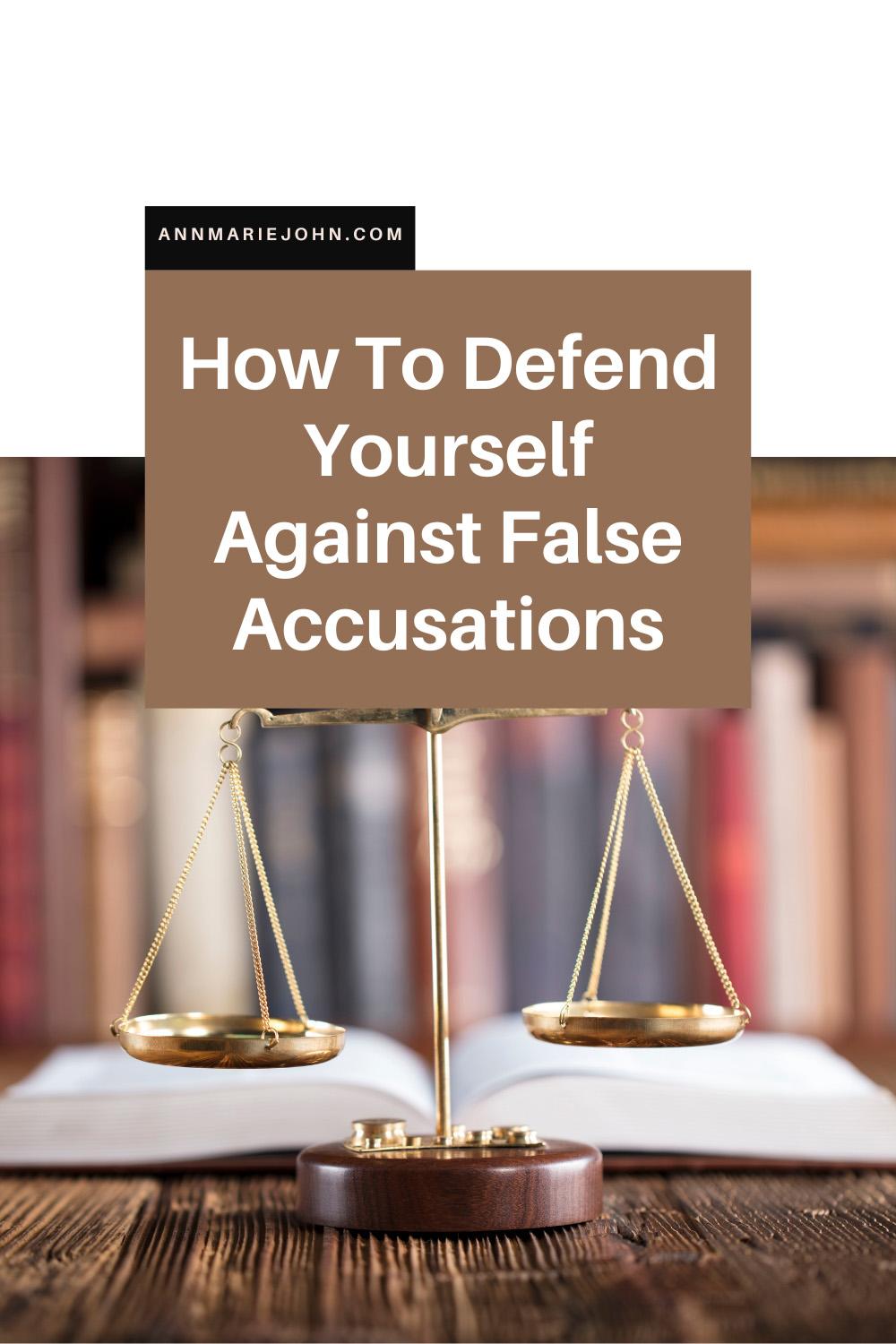If you’ve been falsely accused of a crime, these are the steps you need to take to protect yourself.

Are you facing false accusations? Facing false accusations can be a difficult and overwhelming experience. In some cases, the accuser may have malicious intent, while in other cases, they could be misinformed or misguided. Regardless of the situation, it’s important to take steps to defend yourself against any false accusations that are made against you. This article will outline some key steps when facing a false accusation. Let’s get started.

Realize the Seriousness of these Accusations
The first step is to understand how serious the accusations are, especially if they have to do with the law. False accusations can be damaging, not just to your reputation but also to your future prospects. This is why taking all necessary steps and measures to protect yourself in the case of false accusations is important.
If the accusations are criminal in nature, then it’s in your best interest to consult a legal professional. As highlighted by the team behind the Wilkie Law Firm, a lawyer can provide the advice you need on protecting your rights and navigating the legal system. They will work on your case to ensure that justice is served.
Gather Evidence
The next step is to gather evidence that disproves the accusations against you. This could involve gathering testimonies from witnesses, pictures/videos, documents, and other forms of proof that refute the claims being made. While it’s understandable if some evidence can’t be provided for reasons of anonymity or other reasons, it’s important to understand that the more evidence you have on your side, the easier it will be to defend yourself.
When collecting your evidence, make sure to keep careful records of who, what, when, and where. This will be useful should the case need to go to court. If you are collecting video or photo evidence, make sure it is clear and relevant to the accusations.
Intervene Before Charges
If possible, try to intervene before charges are filed against you. This is due to the possibility that the accuser is still open to negotiation and that a resolution can be reached without going to court. Talk with the accuser and ensure they understand your version of events.
You should also tell them about any evidence you have that disproves their claims and why the accusations are false. This is where having an experienced lawyer on your side can be beneficial, as they will know how to navigate any legal aspects of the case. If negotiations don’t work, it’s time to consider other options.
Be Proactive in Your Defense
Being proactive means taking steps, such as writing a response to the accuser’s claims, to protect your reputation and ensure that justice is served. If you have evidence that disproves the accusations, make sure to share this with the relevant authorities.
You should also take steps, such as filing a report or lawsuit against someone making false accusations. Filing a legal action can effectively protect yourself, as it will show that you are taking the accusations seriously. You can also consult an experienced lawyer to determine whether filing a legal action would be beneficial.
Seek Support
It’s important to remember that facing false accusations can be emotionally draining and stressful. It’s okay to seek help from your family and friends or even counseling services if needed. This can help you cope with the stress of the situation and stay focused on getting justice.
One of the best ways to do so is by joining a support group. This can be an invaluable resource to help you stay focused and find the strength to fight against these false accusations. Moreover, your lawyer can help you find the right support groups and other resources to help you cope with the situation.
Plea Bargain
In some cases, the accused person may agree to talk with the prosecutor about a plea deal. This means agreeing to a less severe punishment in exchange for pleading guilty or “no contest.” This can be an effective way of avoiding trials and their associated risks. However, it’s important to understand that this should only be done after consulting your lawyer and if you are sure it is the right choice for you.
When taking a plea, make sure to discuss the terms of the plea with your lawyer and ensure that you are comfortable with them. This can help avoid potential issues arising from taking such a step. Moreover, pleading guilty or no contest will mean that you cannot take any further action against the accuser.
In Conclusion
False accusations can be stressful and emotionally draining. Staying calm and defending yourself by gathering evidence, being proactive in your defense, asking for help from family, friends, or counseling services, and thinking about options like plea bargaining are important. With the right tools and help, you can defend yourself against false accusations and get the justice you deserve.
